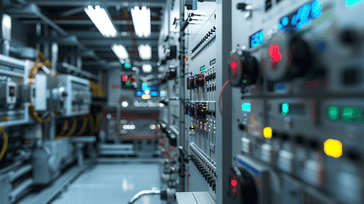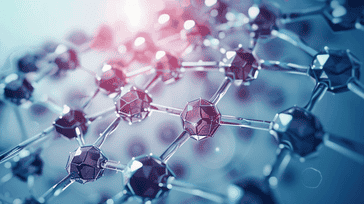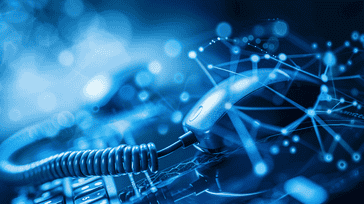
Welcome to our article on power electronics and their role in technology and electronics. Power electronics is a field that focuses on the efficient management and control of electrical power, revolutionizing various industries and shaping the future of innovation. In this section, we will delve into the fundamentals of power electronics and explore its applications in electronic devices and gadgets, highlighting its significance in today's world.
Key Takeaways:
- Power electronics enhances the control and conversion of electric power in an efficient manner.
- It plays a crucial role in driving technological advancements and shaping the future of various industries.
- Power electronics optimize energy usage and enhance the performance of electronic systems.
- It contributes to the development of innovative solutions and smart technologies.
- Power electronics have made electronic devices smaller, more powerful, and more efficient.
The Role of Power Electronics in Technology Advancements
Power electronics is playing a pivotal role in driving technological advancements and shaping the future of various industries. From consumer electronics to smart technology and digital devices, power electronics is a key enabler of innovation and efficiency.
With its ability to efficiently manage electrical power, power electronics ensures that electronic systems can operate at peak performance while utilizing power resources optimally. This not only enhances the overall functionality of devices but also extends their battery life, making them more convenient and reliable for users.
By leveraging power electronics, technology companies can design smaller and more compact devices without compromising on power or performance. This has led to significant advancements in the realm of consumer electronics, enabling the creation of sleek smartphones, lightweight laptops, and portable gaming consoles.
Furthermore, power electronics has paved the way for the development of smart technology and IoT (Internet of Things) devices. With power electronics at the core, these devices can effectively communicate and interact with each other, creating a seamless connected ecosystem. This opens up a world of possibilities in areas such as home automation, healthcare monitoring, and smart cities.
As tech trends continue to evolve, power electronics will remain at the forefront of innovation. From energy-efficient electric vehicles to renewable energy systems, power electronics is driving the shift towards a more sustainable future.
"Power electronics is the backbone of modern-day technology, propelling us towards a future where electronics are not only smarter but also greener."
— [Insert Expert Name], [Insert Expert Title]
As power electronics continues to advance, we can expect to see further integration of renewable energy sources, improved energy storage solutions, and increased efficiency in power management. These developments will reshape industries and enhance the overall user experience, making technology more accessible, sustainable, and impactful for everyone.
Applications of Power Electronics in Various Industries
| Industry | Application |
|---|---|
| Consumer Electronics | Smaller and more powerful devices |
| Automotive | Electric vehicles and hybrid systems |
| Renewable Energy | Solar and wind power generation |
| Telecommunications | High-frequency power converters |
| Industrial Automation | Precision motor control |
Understanding Power Electronics and Its Applications

In today's technologically advanced world, power electronics plays a pivotal role in the efficient management of electrical power. But what exactly is power electronics and how does it impact our everyday lives? In this section, we'll delve into the intricacies of power electronics, exploring its applications in a wide range of electronic devices and gadgets.
Power electronics is a field of study and technology that focuses on the control and conversion of electrical power. It involves the use of devices and circuits to manipulate the flow of electric energy and optimize the performance of electronic systems. This technology has made significant advancements over the years, enabling the development of smaller, smarter, and more energy-efficient electronic devices.
From smartphones and tablets to smart home appliances and electric vehicles, power electronics is at the core of their functionality. It enables these devices to efficiently convert electrical power to perform various functions, such as charging batteries, driving motors, and controlling power distribution.
The applications of power electronics are vast and diverse. It is used in renewable energy systems to convert the electricity generated from sources like solar panels and wind turbines into a form suitable for the electrical grid. Power electronics is also essential in industrial automation, where it enables precise control of machinery and equipment.
Gadgets such as laptops, gaming consoles, and wearable devices rely on power electronics to manage their power consumption and optimize battery life. This technology ensures that energy is used efficiently, prolonging the device's runtime and enhancing the user experience.
"Power electronics is the backbone of modern technology and its applications are limitless. From healthcare and transportation to communication and entertainment, this field plays a vital role in shaping our interconnected world." - Dr. John Davis, Power Electronics Expert
With the constant evolution of technology, power electronics continues to drive innovation. As consumers demand more powerful and energy-efficient devices, the importance of power electronics cannot be overstated.
Advancements in Power Electronics
The field of power electronics is constantly evolving, with researchers and engineers exploring new ways to improve efficiency and performance. Some of the key advancements in power electronics include:
- Wide bandgap semiconductor materials, such as silicon carbide (SiC) and gallium nitride (GaN), which enable higher power densities and lower energy losses.
- Advanced control algorithms and digital signal processors (DSPs) that enhance the precision and responsiveness of power electronic systems.
- Integration of power electronics with emerging technologies like artificial intelligence (AI) and Internet of Things (IoT), enabling smarter and more interconnected devices.
These advancements are paving the way for a future where power electronics plays an even more significant role in technology and electronics.
| Applications | Examples |
|---|---|
| Consumer Electronics | Smartphones, laptops, gaming consoles |
| Renewable Energy | Solar power inverters, wind turbine converters |
| Industrial Automation | Motor drives, variable frequency drives |
| Electric Vehicles | Battery chargers, motor controllers |
| Medical Devices | MRI machines, ultrasound systems |
Efficient Conversion of Electric Power
In today's rapidly advancing technological landscape, efficient management of electrical power has become increasingly crucial. Power electronics, with their ability to optimize energy usage and enhance performance, play a pivotal role in achieving this objective. Through precise control and conversion of electric power, power electronics enable the seamless operation of various electronic systems.
A key aspect of power electronics is their capability to efficiently convert electric power from one form to another. This conversion process ensures that energy is utilized effectively, minimizing losses and maximizing overall efficiency. By leveraging cutting-edge technology and advanced circuitry, power electronics enable the seamless integration of electrical power into a wide range of applications.
From renewable energy systems to electric vehicles, power electronics allow for the efficient conversion of electrical power, facilitating the transition to a sustainable and environmentally friendly future. They enable the integration of renewable energy sources, such as solar and wind, into the electrical grid, thereby reducing reliance on fossil fuels and decreasing carbon emissions.
Benefits of Efficient Power Conversion
The efficient conversion of electric power through power electronics offers numerous benefits:
- Optimized Energy Usage: By eliminating or minimizing energy losses during power conversion, power electronics ensure that electricity is utilized efficiently, reducing waste and conserving valuable resources.
- Enhanced Performance: Power electronics enhance the overall performance of electronic systems by providing stable and controlled power output, resulting in improved efficiency, reliability, and longevity.
- Compact Design: With efficient power conversion, electronic devices can be made smaller and more compact without compromising their performance, allowing for sleek and portable designs.
- Cost Savings: Efficient power conversion reduces energy consumption and operating costs, making power electronics an economically viable solution for various industries, from manufacturing to transportation.
By capitalizing on power electronics' efficient conversion capabilities, industries can harness electrical power more effectively, driving innovation and sustainable development.
"Efficient power conversion through power electronics optimizes energy usage, enhances performance, and drives innovation."
Enhancing Control and Efficiency in Electronic Systems

The field of power electronics plays a vital role in enhancing control and efficiency in electronic systems, ushering in a new era of innovation and smart technology. By effectively managing and optimizing the flow of electrical power, power electronics enable the development of cutting-edge solutions that not only improve the performance of electronic devices but also contribute to a more sustainable future.
Efficient Management of Electrical Power
Power electronics technology provides efficient management of electrical power by enabling precise control over voltage, current, and frequency. This level of control allows for enhanced energy conversion, reducing power losses and maximizing the overall efficiency of electronic systems. Through advanced power electronic components and circuits, various devices can operate at optimal performance levels while minimizing energy consumption.
Enabling Innovation and Smart Technologies
Power electronics serves as a driving force behind innovation and the development of smart technologies. By integrating power electronic devices into various electronic systems, revolutionary advancements have been made in sectors such as renewable energy, electric vehicles, and IoT devices. These technological advancements not only pave the way for a greener and more sustainable future but also empower individuals and businesses with smart, interconnected solutions that improve daily life and drive economic growth.
One of the key aspects of power electronics is its ability to efficiently convert and control electrical power, enabling the seamless integration of renewable energy sources into the grid. With the increasing demand for clean and sustainable energy, power electronics plays a crucial role in harnessing power from sources like solar panels and wind turbines and transforming it into usable electricity.
Optimizing Performance and Reliability
Power electronics also contributes to optimizing the performance and reliability of electronic systems. By efficiently managing power distribution and offering precise control over voltage regulation, power electronics ensure that electronic devices operate within safe and reliable parameters. This not only extends the lifespan of electronic devices but also enhances their efficiency, reducing maintenance costs and improving user experience.
Real-World Applications
Power electronics finds application in various industries, impacting a wide range of electronic systems. Some notable examples include:
- Power supplies: Efficient power conversion and regulation in computer systems and other electronic devices.
- Industrial automation: Precise control of motors and drives for improved efficiency and productivity.
- Renewable energy: Integration of solar inverters and wind turbine converters for efficient power generation.
- Automotive industry: Electric vehicle power electronics for efficient energy conversion and improved driving range.
- Consumer electronics: Power management in smartphones, laptops, and other portable devices for longer battery life.
Power electronics has transformed the way we interact with technology, enabling the development of advanced electronic systems and smart devices that improve efficiency, enhance control, and contribute to a sustainable future.
| Industry | Application |
|---|---|
| Power Generation | Efficient conversion of renewable energy sources |
| Automotive | Electric vehicle power electronics |
| Consumer Electronics | Power management in smartphones, laptops, etc. |
| Industrial Automation | Precise motor control and drives |
| Renewable Energy | Solar inverters and wind turbine converters |
Power Electronics in Consumer Electronics and Electronic Accessories
The integration of power electronics has had a profound impact on the world of consumer electronics and electronic accessories. This technology has played a crucial role in making electronic devices smaller, more powerful, and highly efficient, revolutionizing the way we interact with gadgets and enhancing our digital experiences.
Consumer electronics, ranging from smartphones and tablets to laptops and wearable devices, have become an integral part of our daily lives. These devices rely on power electronics to manage and deliver the electrical power required for their optimal functioning. By efficiently converting and controlling electric power, power electronics enable these devices to perform at their best, delivering superior performance and longer battery life.
One of the major advantages of power electronics in consumer electronics is the ability to make devices smaller and more compact. This advancement has allowed manufacturers to produce sleek, portable gadgets that can easily fit in our pockets or bags. Power electronics have paved the way for the development of ultra-thin smartphones, lightweight laptops, and compact wearable devices, offering convenience and portability without compromising on performance.
Additionally, power electronics have significantly contributed to the power management of electronic accessories. From chargers and adapters to power banks and wireless charging pads, these accessories rely on power electronics to efficiently transfer and deliver electrical power, ensuring the safe and fast charging of our devices. Through advanced power conversion and control techniques, power electronics have enhanced the charging experience, minimizing energy loss and optimizing charging efficiency.
To showcase the impact of power electronics in consumer electronics and electronic accessories, let's take a look at a comparative table that highlights some key features:
| Electronic Device/Accessory | Power Electronics | Benefits |
|---|---|---|
| Smartphone | Efficient power conversion | Longer battery life, faster charging |
| Laptop | Power management | Energy savings, improved performance |
| Wireless Charger | Power transfer control | Convenient charging, minimized energy loss |
| Power Bank | Portable power storage | On-the-go charging, extended device usage |
The table above demonstrates how power electronics have transformed consumer electronics and electronic accessories by providing efficient power management, extended battery life, faster charging, and improved overall performance. It emphasizes the importance of power electronics in enabling the seamless integration of technology into our daily lives, empowering us to stay connected and productive on the go.
As technology continues to evolve, power electronics will play an increasingly crucial role in shaping the future of consumer electronics and electronic accessories. With ongoing innovations and advancements in this field, we can expect to see even smaller, more powerful, and energy-efficient devices, further enhancing our digital lifestyles.
Emerging Trends and Future Possibilities

As power electronics continue to advance, new trends and possibilities are emerging that have the potential to reshape the technology and electronics industry. Innovations in power electronics are transforming the way we use and interact with technology, offering exciting opportunities for future development.
Integration of Power Electronics in Internet of Things (IoT)
The integration of power electronics with the Internet of Things (IoT) is one of the most promising trends in the field. IoT devices require efficient power management systems to maximize battery life and ensure reliable operation. Power electronics technology allows for intelligent power management, enabling IoT devices to operate autonomously and efficiently.
Wide Bandgap (WBG) Semiconductors
Wide bandgap semiconductors, such as silicon carbide (SiC) and gallium nitride (GaN), are gaining traction in the power electronics industry. These materials offer higher energy efficiency, improved thermal conductivity, and higher breakdown voltage capabilities compared to conventional silicon-based components. WBG semiconductors are expected to play a crucial role in enabling the development of more efficient and compact power electronics devices.
Renewable Energy Integration
The increased adoption of renewable energy sources, such as solar and wind, presents challenges in terms of stability, grid integration, and power quality. Power electronics technologies are instrumental in efficiently managing the power generated from renewable sources, enabling seamless integration into existing electrical grids. By providing high-efficiency power conversion and grid synchronization solutions, power electronics play a crucial role in accelerating the transition towards a sustainable energy future.
Miniaturization and Wearable Technology
Power electronics are driving the miniaturization of electronic devices and the development of wearable technology. The demand for smaller, lightweight, and more power-efficient devices is on the rise, and power electronics advancements are making this possible. Wearable devices, such as smartwatches and fitness trackers, require efficient power management systems to ensure prolonged battery life and optimal performance.
Advanced Power Packaging
Advanced power packaging techniques are playing a critical role in maximizing power density and efficiency while reducing size and weight. Innovative packaging solutions, such as 3D packaging, embedded substrate technologies, and advanced thermal management, are enabling the development of compact and high-performance power electronic systems.
Advancements in Power Electronics
| Advancements | Benefits |
|-----------------------------|---------------------------------------------------------------------------------------|
| Integration with IoT | Efficient power management for IoT devices |
| Wide bandgap semiconductors | Higher energy efficiency, improved thermal conductivity, and higher breakdown voltage |
| Renewable energy integration | Efficient management of power generated from renewable sources |
| Miniaturization | Smaller, lightweight, and more power-efficient electronic devices |
| Advanced power packaging | Maximizing power density and efficiency, reducing size and weight |
These emerging trends and future possibilities in power electronics reflect the continuous pursuit of innovation and efficiency in technology and electronics. As power electronics evolve, exciting new applications and opportunities will arise, shaping the future of various industries and transforming the way we live and work.
Conclusion
In conclusion, power electronics are at the forefront of revolutionizing technology and electronics, enabling efficient management of electrical power. Their impact spans across various industries, driving innovation and shaping the future of smart technology and consumer electronics. By optimizing the control and conversion of electric power, power electronics enhance the performance and energy efficiency of electronic systems, paving the way for advancements in various fields.
From consumer electronics to industrial applications, power electronics play a crucial role in powering our interconnected world. With their efficient management of electrical power, they enable the development of smaller, more powerful, and more energy-efficient devices. This technology not only improves everyday gadgets but also powers complex systems in sectors such as renewable energy, automotive, and telecommunications.
The continuous advancements in power electronics are fueling the evolution of smart technology, allowing for the seamless integration of devices and the creation of innovative solutions. As technology progresses, power electronics will continue to shape the landscape, enabling us to achieve greater levels of control, efficiency, and sustainability in our electronic systems. With the potential for further miniaturization and increased power density, power electronics hold the key to unlocking a future filled with smarter, more connected, and eco-friendly electronic devices.
FAQ
What is power electronics?
Power electronics refers to the technology and field of study that focuses on the efficient management and control of electrical power. It involves the control and conversion of electric power using various electronic devices and systems to optimize energy usage and enhance the performance of electronic systems.
What role does power electronics play in technology advancements?
Power electronics plays a crucial role in driving technology advancements across various industries. It enables the development of innovative solutions and the creation of smart technologies. By enhancing control and efficiency in electronic systems, power electronics contribute to the progression of industries such as consumer electronics, smart technology, and digital devices.
How are power electronics applied in electronic devices and gadgets?
Power electronics find applications in a wide range of electronic devices and gadgets. They are used in smartphones, laptops, televisions, gaming consoles, and many other consumer electronics. Power electronics technology allows for efficient conversion and management of electrical power in these devices, resulting in smaller, more powerful, and energy-efficient products.
What are the benefits of power electronics in electronic systems?
Power electronics enable the efficient conversion of electric power, optimizing energy usage and enhancing the overall performance of electronic systems. By enhancing control and efficiency, power electronics contribute to improved functionality, reduced energy consumption, and longer battery life in electronic devices.
How does power electronics impact consumer electronics and electronic accessories?
Power electronics have had a significant impact on the consumer electronics industry and electronic accessories. This technology has made electronic devices smaller, more powerful, and more efficient. Power electronics have enabled the development of high-performance smartphones, wearable devices, wireless chargers, and other electronic accessories that enhance the overall user experience.
What are the emerging trends and future possibilities in power electronics?
The field of power electronics is constantly evolving, and there are several emerging trends and future possibilities in this area. These include advancements in semiconductor materials, increased integration of power electronics with renewable energy sources, the development of wide bandgap devices, and the application of power electronics in electric vehicles and smart grid systems.







